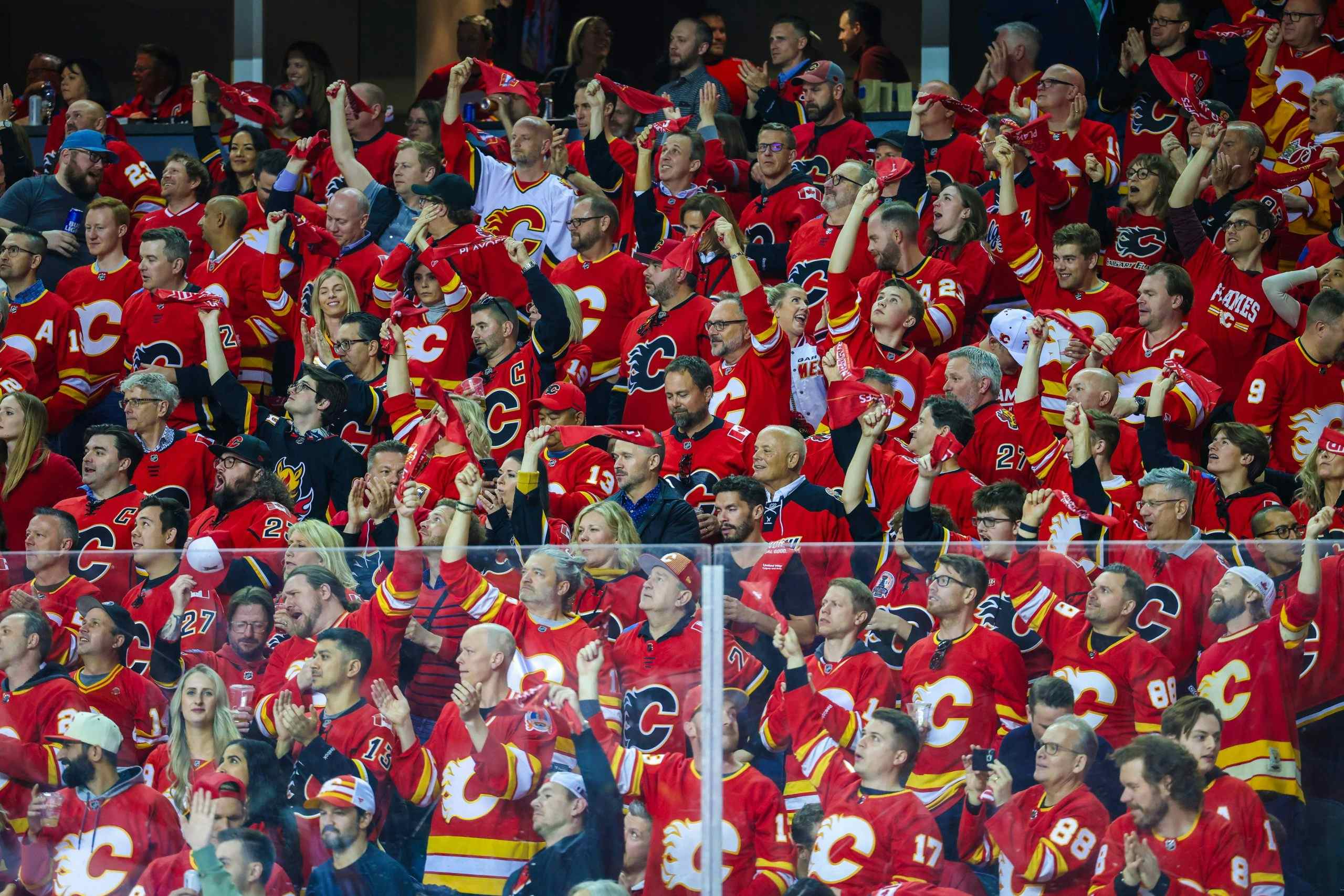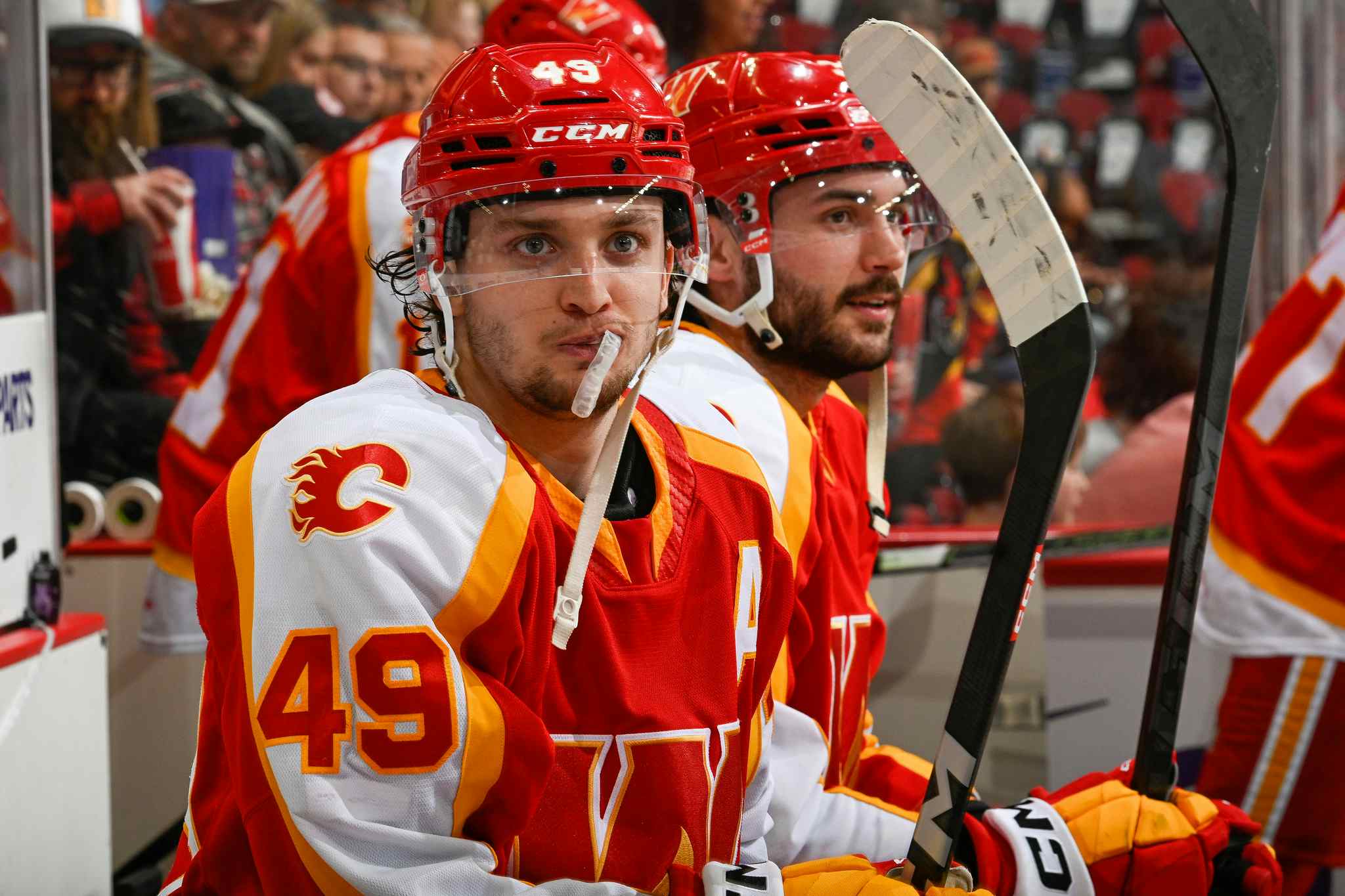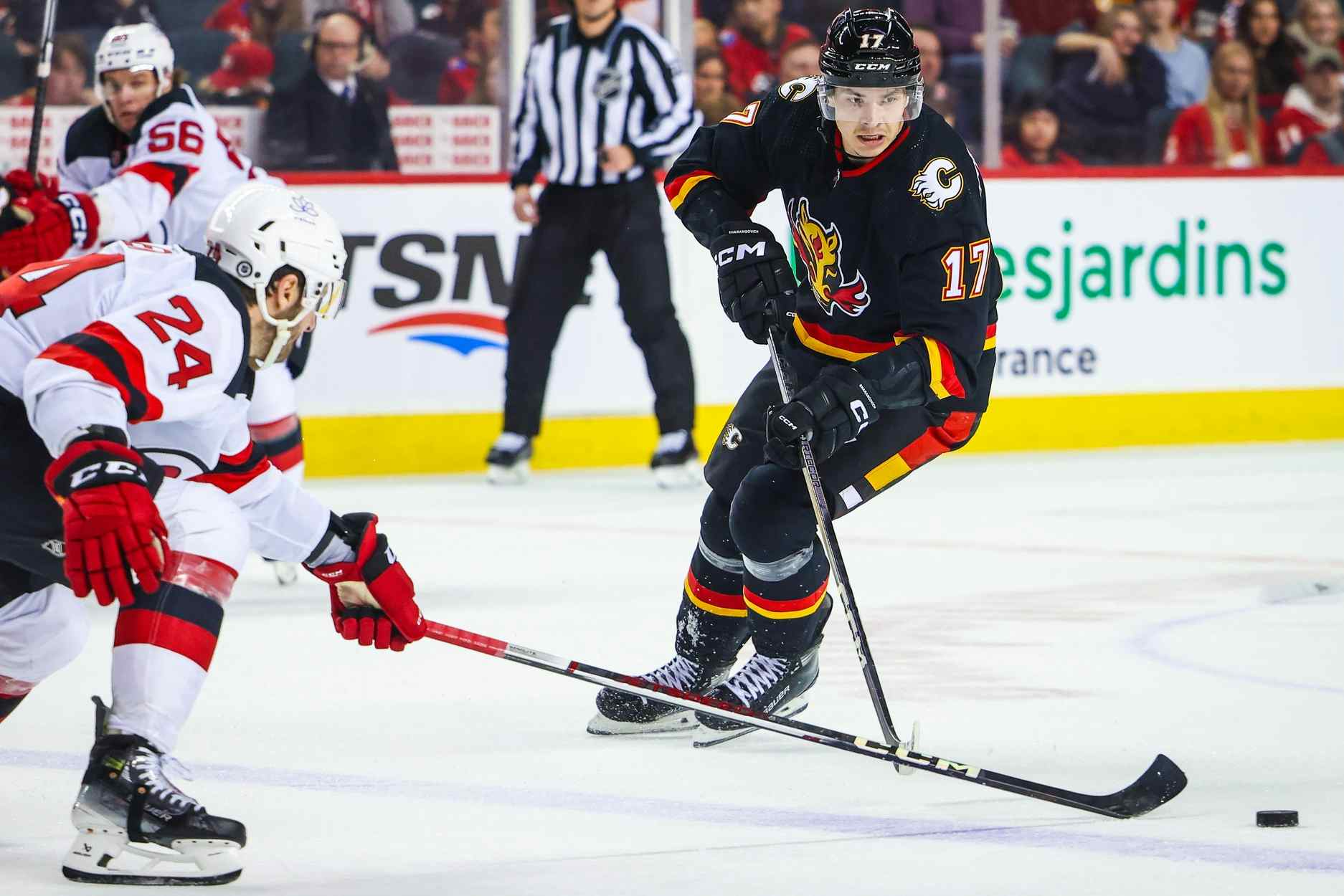The best and worst Flames coaches ever
By Ryan Pike
7 years agoThe Calgary Flames are currently looking for a head coach.
Over their 44 seasons in the National Hockey League, the Flames have had 17 head coaches (including interims). Some were good. Some were bad. All of them lost their job in one way or another. If you want to get technical, two of them fired themselves.
Here’s our ranking of Flames coaches from worst to best.
17. GREG GILBERT
Tenure: 2001-2002
Expectations: Hired to replace Don Hay in mid-season, with the idea that a young whiz kid could succeed where an award-winning veteran junior coach didn’t.
Reality: Feuded with Marc Savard, the team’s most talented non-Jarome Iginla forward at the time, leading to Savard getting traded to Atlanta by general manager Craig Button for a Russian prospect that nobody ever heard of. Oh, and the Flames puttered around near the bottom of the standings despite having such a harmonious environment in which to play.
Exit Strategy: Fired after posting the worst points percentage of any Flames coach in franchise history, including the expansion years in Atlanta.
16. DON HAY
Tenure: 2000-2001
Expectations: Brought in to help Calgary’s ragtag bunch of youngsters mature into a structured powerhouse, having done so in many stops in the Western Hockey League.
Reality: The Flames were just as inconsistent with a systems-heavy coach as they were with his predecessors.
Exit Strategy: Fired after just 68 games (the shortest non-interim tenure in team history), replaced by assistant coach Greg Gilbert.
15. BRIAN SUTTER
Tenure: 1997-2000
Expectations: Brought in to whip Calgary’s youngsters into shape. Yes, just like Don Hay, but before him (and with much more of an established NHL coaching pedigree).
Reality: The Flames were between 5-15 games below .500 in each season during his tenure. The team wasn’t exactly star-studded during his time in Calgary, but the guy was behind the bench for the two worst seasons (points-wise) in franchise history.
Exit Strategy: To nobody’s huge surprise, the Flames didn’t offer Sutter a new contract after his initial deal expired.
14. GUY CHARRON
Tenure: 1992
Charron was promoted on an interim basis by General Manager Doug Risebrough to replace Head Coach Doug Risebrough. He coached for fewer than 20 games and then returned to his assistant coach duties the following season. He was fine.
13. BERNIE (BOOM BOOM) GEOFFRION
Tenure: 1972-1975
Expectations: Help an expansion team not embarrass themselves.
Reality: They made the playoffs once in his three years. They weren’t terrible, but they also weren’t particularly good, and he got the axe in the third season when it appeared that the club was beginning to backslide a bit.
Exit Strategy: Fired 52 games into the 1974-75 season and replaced by Fred Creighton.
12. PIERRE PAGE
Tenure: 1995-1997
Expectations: Taking over from relative NHL coaching newcomer Dave King, the thought was the veteran Page could steady a Flames team battered by a low Canadian dollar and forced to sell off most of its important/good/expensive pieces to stay afloat.
Reality: The guy that hired Page, Doug Risebrough, was fired roughly a month into the season (which was probably a bad sign). The Flames made the playoffs that first season, but were swept by Chicago. The dismantling continued and they were bad the next season, finishing nine games below .500 and beginning a lengthy tumble down the standings.
Exit Strategy: Page was fired after his disastrous second season.
11. DOUG RISEBROUGH
Tenure: 1990-1992
Expectations: Just two seasons removed from winning the Stanley Cup, the Flames were still mostly the same club that climbed the mountain. The thought process was likely that Risebrough, recently retired and a member of the 1986 Cup finalist team and assistant coach of the 1989 Cup-winning team, would have unique insights and be able to get the most out of the group.
Reality: The Risebrough-led Flames managed a second place finish (and first round exit) in his one full season as head coach. Mentor Cliff Fletcher left for Toronto following that season, handing the GM reins to Riser. Double duty proved too much for him, as the Flames sputtered to their first playoff-less season since 1974-75 and the young exec got fleeced in the Doug Gilmour mega-trade.
Exit Strategy: Risebrough gave himself the axe, resigning as head coach with 16 games left in the 1991-92 season.
10. BOB HARTLEY
Tenure: 2012-2016
Expectations: Shepard a transitioning Flames take through the murky rebuild years as they jettison everyone fans had heard of – such as Jarome Iginla, Jay Bouwmeester and a retiring Miikka Kiprusoff – and replace them with cheaper, younger and more anonymous players.
Reality: After trading away Iginla and Bouwmeester after his first season, Hartley’s club had two pretty decent seasons. They made the playoffs and won the team’s first round in over a decade, but backslid in the following season as the bounces that they got the previous year all went against them.
Exit Strategy: Hartley was fired following his fourth season behind the bench.
9. BRENT SUTTER
Tenure: 2009-2012
Expectations: Want to be brutally honest? Renowned junior coach Brent Sutter was poached from the New Jersey Devils by his brother, hoping he could be the guy to get his veteran-laden club over the hump. (By this point Darryl, Jim Playfair and Mike Keenan had all failed, and the vultures were beginning to circle.)
Reality: Brent’s tenure was presaged by Darryl’s infamous “This is a difficult team to coach” speech. Three mediocre years later, with a veteran team that never seemed to find a cohesive strategy, Darryl had been relieved of his duties.
Exit Strategy: The Flames didn’t renew Brent’s contract. He didn’t seem to mind.
8. FRED CREIGHTON
Tenure: 1975-79
Expectations: Taking over for Bernie Geoffrion in Atlanta, the hope was Creighton could help the young Flames team continue their progression into respectability.
Reality: That’s basically what happened. The Flames weren’t world-beaters under Creighton, but they made the playoffs in all four full seasons he was at the helm. Granted, they did not win any of those series, but baby steps.
Exit Strategy: Creighton left the Flames following his fourth (full) season and took a job with the Boston Bruins.
7. MIKE KEENAN
Tenure: 2007-2009
Expectations: After the veteran-laden Flames didn’t respond to rookie coach Jim Playfair, GM Darryl Sutter recruited legendary coach Mike Keenan to lead them to championship glory!
Reality: Keenan’s Flames had two good regular season performances punctuated by two first round playoff exits.
Exit Strategy: Keenan was fired following the second first round exit.
6. JIM PLAYFAIR
Tenure: 2006-2007
Expectations: Promoted from within by mentor Darryl Sutter, Playfair was thought to be young enough, energetic enough and familiar with the team enough to actually get them over the hump.
Reality: Playfair seemed to have trouble adjusting to the new role, and the team seemed to have trouble adjusting to him – “He barely played in the NHL and now he’s a head coach, OMG!” – and so the marriage never really clicked. They sputtered in the playoffs.
Exit Strategy: Sutter demoted Playfair to associate coach and brought in Mike Keenan to do the job, in a situation seemingly bound for disaster. To nobody’s surprise, it didn’t really work.
5. AL MacNEIL
Tenure: 1979-1982 (and 2003)
Expectations: MacNeil actually had two tenures. As Atlanta’s last coach, the hope was he would help the young team progress into a consistent playoff team. He also served on an interim basis after Greg Gilbert got the axe in 2002.
Reality: MacNeil guided the Flames for three full seasons, making the playoffs in every year. In his second season, the team relocated to sunny Canada and won two playoff rounds. Granted, a lot of it was Kent Nilsson-fueled, but MacNeil clearly knew how to use him well.
Exit Strategy: MacNeil was promoted to the management team. He was trusted enough to take over behind the bench (on an interim basis) after Gilbert got fired but before Darryl Sutter was available. (He actually did pretty well considering he hadn’t coached in two decades.)
4. DAVE KING
Tenure: 1992-1995
Expectations: Doug Risebrough was a bad fit as coach, but as general manager he brought in respected Canadian national team coach Dave King in to provide structure, guidance and a steady hand.
Reality: King’s teams won two division titles in three seasons and made the playoffs in each of the years he was at the helm. Unfortunately, they had three first round exits and seemed like a team that just found ways to lose.
Exit Strategy: King’s contract wasn’t renewed following his third season.
3. TERRY CRISP
Tenure: 1987-1990
Expectations: Bob Johnson left the team, so the Flames turned to Terry Crisp to finish the job that Johnson started and win a championship.
Reality: Crisp inherited a championship-caliber team. He proved up to the task and led them to a championship. The following season wasn’t quite as good, despite having a very similar (star/talent-laden) team.
Exit Strategy: The Flames and Crisp parted ways following the 1989-90 season’s first round playoff exit.
2. DARRYL SUTTER
Tenure: 2003-2006
Expectations: Sutter was recruited to instil an underfunded, undermanned Flames team with some sense of structure and purpose in an effort to not squander Jarome Iginla’s immense offensive skill.
Reality: Somehow he brought a team very low on star power to within a goal of a Stanley Cup. Then he went mad trying to upgrade the team in juuust the right ways to get back to the big dance.
Exit Strategy: Technically fired himself, as he resigned as head coach following the 2005-06 season to put 100% of his attention to the general manager’s chair.
1. BOB JOHNSON
Tenure: 1982-1987
Expectations: One of the most respected coaches in NCAA history, he was asked to take Cliff Fletcher’s rag-tag group that went to the 1981 Conference Finals and turn them into a bonafide contender.
Reality: Johnson’s team won five playoff series (and played in 10) over five years, primarily en route to their first Stanley Cup Final in 1986.
Exit Strategy: He left the Flames to take a position with USA Hockey.
Recent articles from Ryan Pike





